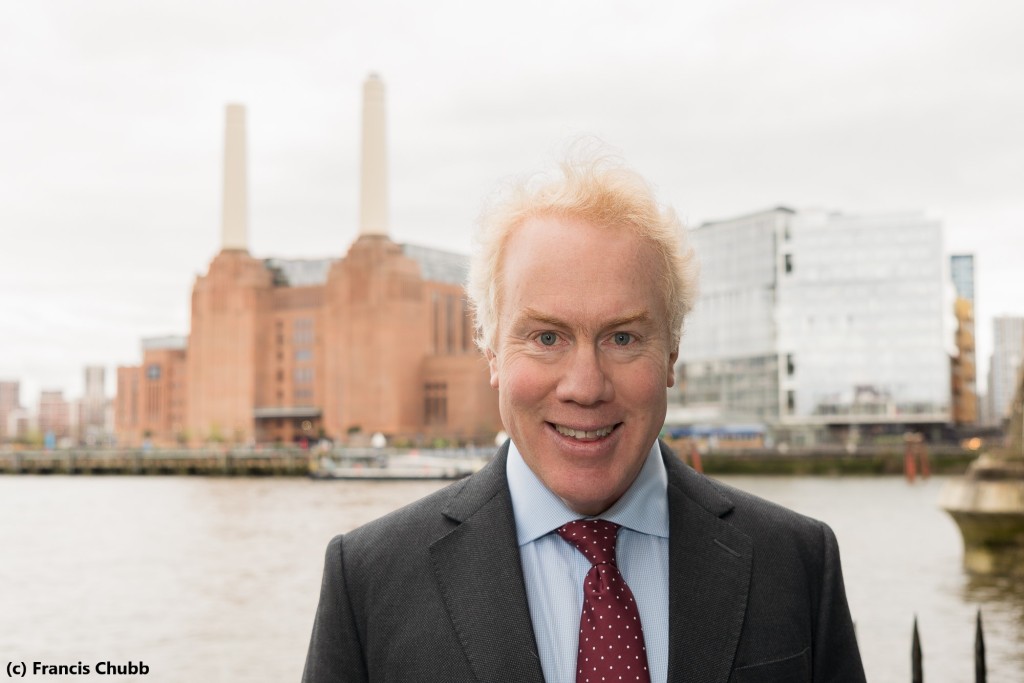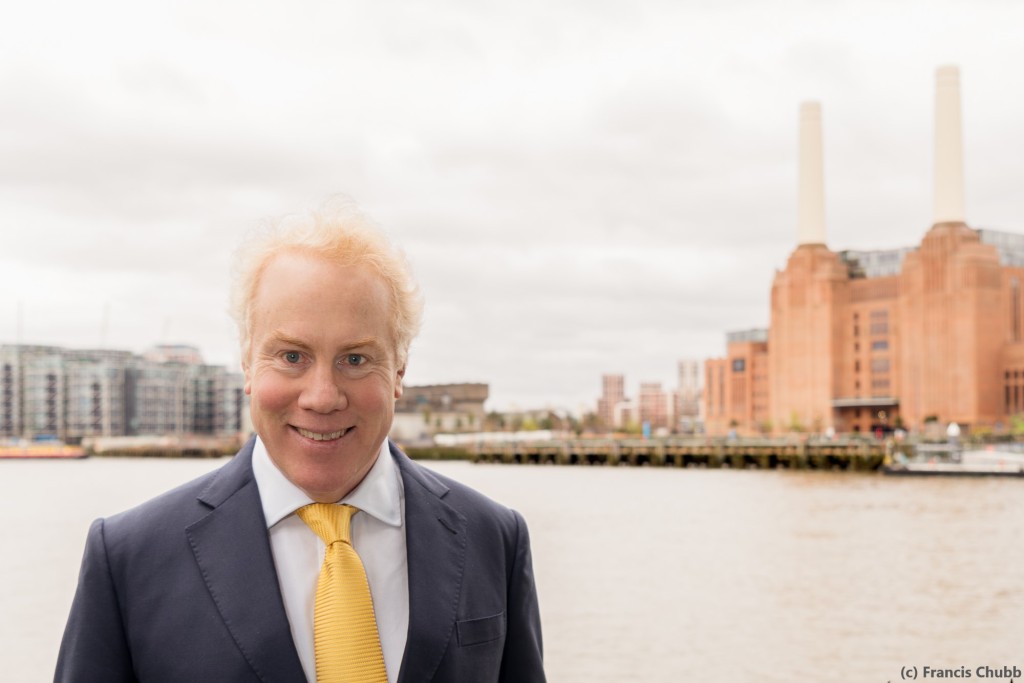Francis Chubb is the Liberal Democrats candidate in the Battersea constituency for the 2024 General Election. We and our partners at Clapham Junction insider are inviting all the candidates to short interviews – so you can learn more about who they are, what they believe in, and their plans to improve Battersea and help its residents. Details of all the candidates, and the other interviews, are here.
Could you introduce yourself to our readers? I am a solicitor and I live in Battersea with my family. In my past I have been a junior army officer, a journalist in Egypt, and participated in business ventures in south-east Europe. I have also been a trustee, and chair of the trustees, of a charity that operated a museum in London. I studied Philosophy and Politics in Liverpool and Law in London. I initially trained as a barrister before becoming a solicitor and I, together with a business partner, opened my own law firm in 2009. I have also qualified as an arbitrator and mediator.

Tell us something about you our readers may not know... I was in Berlin on 9th November 1989 when the Wall came down. It showed me that change for the better can be attained even when it appears extremely unlikely and that people’s drive to achieve it should never be underestimated.
You spent six years as an army officer – what are you most proud of in your time there? Of having brokered a settlement to a logging dispute between Croat and Serb parties on the Inter–Entity Boundary Line between Glamoč and Mrkonjić Grad, while serving in Bosnia Herzegovina. This was a real test of one’s listening skills and ability to deal with egos and cultural sensitivities in a tactful and diplomatic way.
What have you learned as a Solicitor / Barrister that you will bring to national politics? How to research and marshal facts, to set out an argument, to really listen to people, and to try to see and engage with alternative points of view. Also acquiring a respect for a system of laws which keeps the peace, enables disputes to be resolved peacefully, and creates a framework in which people can cooperate in amazingly different ways.
The Liberal democrats have a loyal following here, and the share of the vote increased towards 15% in recent elections. However, Battersea’s still often assumed to be a two-horse race between Labour and the Conservatives – how can this time be different? The result of this election appears to be a foregone conclusion.
But, because of the way the odds are stacked, people now have the space to think about how to make their voices heard. Those who wish to see a genuinely freer, fairer, more equal and more accountable form of politics in Britain can demand this without fearing that their efforts to draw attention to this need will let in to power someone wholly unsuitable.
Furthermore, a Labour Party in government will be faced with many serious challenges, so they will have to choose their priorities carefully. The disarray the Conservative Party finds itself in makes it unlikely that it will be a constructive opposition. Having a strong Lib Dem presence in Parliament would mean that issues that are important to people but are not top priorities for Labour will stay on the agenda.
With the busiest station at the heart of Battersea, and many of us relying on public transport – what local transport improvements & developments would you push for as an MP? Accessibility and reliability are two areas in which public transport regularly falls short. I would push for improvements to both. In particular I would like to see a continued effort to make using public transport to travel across London as seamless as possible, especially for those with disabilities or those burdened with small children and luggage.
I am also interested in the operation of the road bridges across the Thames in London. Hammersmith Bridge has been closed to traffic for 5 years, with a considerable impact on traffic through Putney. The responsibility for its upkeep lies with Hammersmith and Fulham Council, which does not have the money for its repair. This situation could easily happen to Battersea, which has bridges at or near its eastern and western boundaries, as well as three bridges between those. The closure of any of them would create choking points that Battersea could ill afford. I think it is worth considering London’s main bridges as strategic assets for the capital, and as such creating an authority whose task is to maintain, repair and replace the bridges to keep them open as much as possible and minimise the disruption that closures cause. This would assist the flow of public transport as well as commercial and private traffic.
Housing is also a key concern here. Many of our readers worry about the proposals we keep seeing for giant new blocks of flats, way exceeding the rules in the Local Plan. However, these projects justify their scale on the grounds that they also provide a proportion of affordable housing. Where do you think is the right balance between providing the social housing we need, and making sure that our urban environment remains one people want to live in? In my view, high-rise does not mean useful social housing and I also oppose them.
It is a balance, but I believe that a higher proportion of affordable housing can be created by recognising that it is reasonable to demand higher density housing within a short radius (say, 500 metres) of a significant transport node. In those areas we should be looking at building low-rise buildings, with green spaces enclosed or around them, with a mix of sizes to enable families to live in them as well as single people or couples. If built like Barcelona or Kensington, these could still be highly attractive places to live.

In the 2016 EU referendum there was a 70% remain vote here, one of the highest in the country – which aligned with the Liberal Democrats’ very clear position! There’s still a lot of strong local feeling about Brexit – but how relevant do you think is it as an issue in this election, and where do we go from here on Europe? Brexit itself has been traumatic, which is a major reason why it has not featured much by name in this election. But Brexit is both a symptom and a cause of where we are as a country today. In my view, we should recognize that sticking-plaster solutions, although urgently needed, will only get us so far. This applies to many of the challenges we face, not just our relationship with Europe, but also climate change, the economy, the health service, criminal justice, public services and infrastructure, housing and immigration. We need to look at our own democracy with a critical eye and make significant changes. Doing so will enable us to revisit previously settled, but inadequate, positions and achieve a level of political consensus to enable us to take mature decisions for the next few decades. Among these will, almost certainly in my personal view, be one to join Europe once more; and it will be much easier to do so when we have both a solid domestic consensus for doing so and when we can demonstrate to our European partners that we have shrugged off the 19th Century at last.
The situation in Gaza is a concern for many, especially in London. As a former journalist in the Middle East, you have also specific experience and expertise in the area. What do you think should be the next government’s position? My personal experience of the region was some time ago now, and much will have changed. However, we all have an interest in seeing peace in the Middle East – and nobody more so than the people concerned, the Israelis and the Palestinians themselves. I think the next government should aim to facilitate a reconciliation and a solution and it should not be afraid to take a different position to that of some of our allies if that is what is needed.
And finally – why should our readers vote for you? Every vote for me is a vote that says: “Actually, I think we can do better than this. I would like to see a democracy that promotes fairness and restores trust to the people. I would like to see a country that defends political and civil freedoms and is ambitious on climate change. I would like to see an economy that responds to the climate emergency and lessens rather than adds to the inequalities across the country.” Every vote for me will put a bit more pressure on the next government to make these changes.
And, as for me, I believe that my training and experience would make me a very effective advocate and representative for Battersea.
Francis’ twitter is here, the Wandsworth Liberal Democrats (who cover the Battersea, Putney, Tooting and Wandsworth constituencies) website is here, and the national party website is here. This is one of a series of interviews, where we aim to speak to all of the candidates for the Battersea constituency in the July 2024 general election, the others are here. Election day is Thursday 4th July, remember that this time you need to take Photo ID (with 22 acceptable forms of ID).

Pingback: We’ve interviewed Battersea’s candidates for the July election – and found a few surprises… | Lavender-Hill.uk : Supporting Lavender Hill